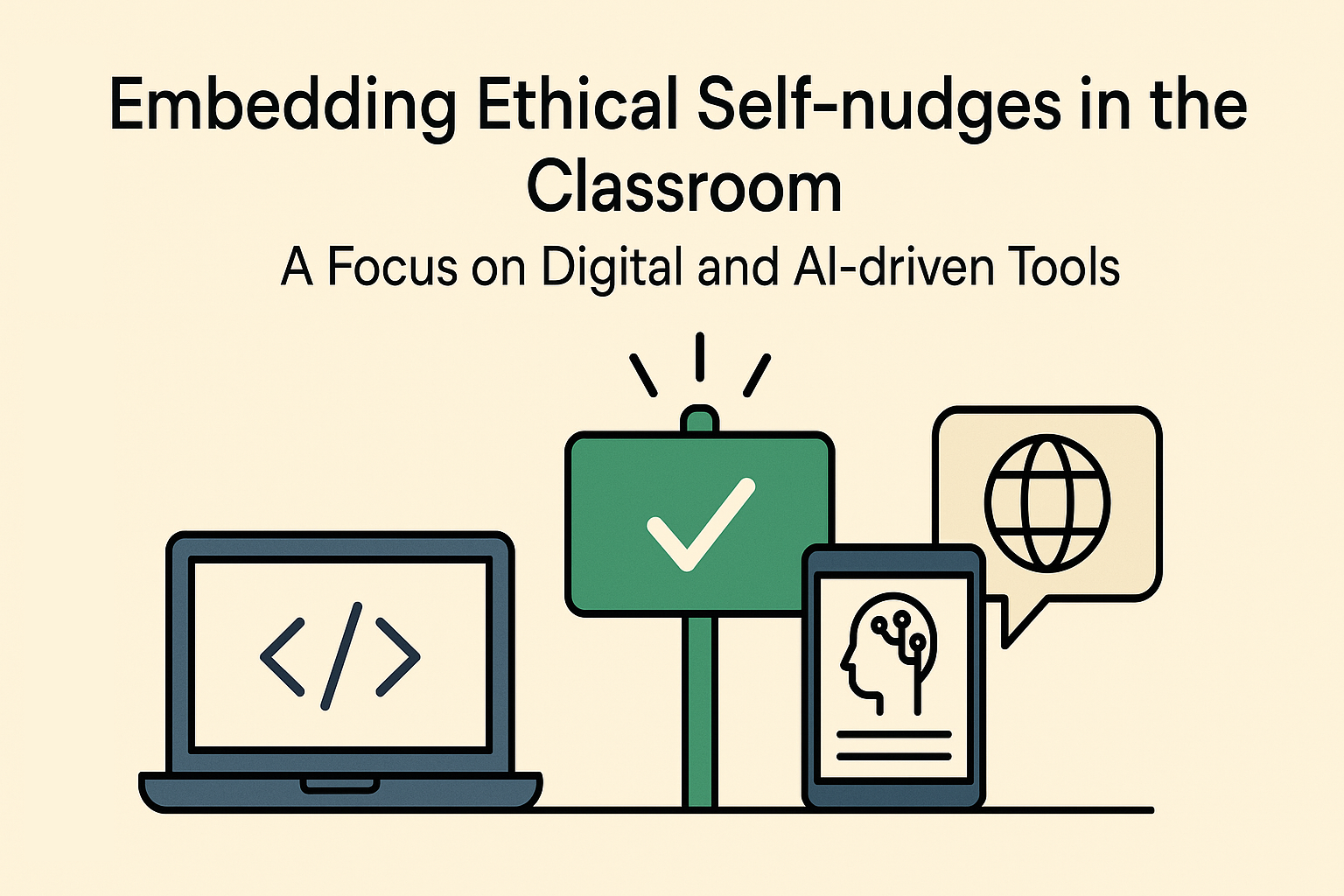
This unit examines how AI-driven and digital tools are transforming higher education dimensions, from enhancing learning experiences to automatizing operational processes. It emphasizes the need for ethical adoption guided by principles like privacy, fairness, transparency, and accountability. Specifically, learners will explore the concept of self-nudging as a practical method for the adoption of digitalization in higher education and how it should be implemented ethically.
The need for critical awareness and ethical guidance in AI and digital tools use in education
In higher education, the integration of AI-driven and digital tools presents transformative opportunities for educators (academic staff), HE managers and admin staff, students and researchers. There is a great variety of positive effects that can result from the implementation of these tools including for instance the development of more engaging learning experiences for students, the optimization of processes for admin and managerial staff and the increased access to resources that can enhance the quality of teaching courses and materials. Nonetheless, effective adoption of AI-driven and digital tools requires critical awareness in understanding the capabilities and limitations of digital and AI-driven tools, questioning their pedagogical relevance, and reflecting on their broader impact on the academic environment (including on its people). Additionally, it also requires ethical guidance which entails establishing clear principles for responsible and safe AI and digital use as well ensuring monitoring measures to make this guidance effective. In this context, while educators are often recipients of institutional changes and policies which already implement digitalization measures, they are now encouraged to explore further the tools at their disposal in order to:
The first step will be to ensure that application of digital or AI tools is aligned with core ethical principles, promotes fairness, and respects the rights and dignity of all those involved. Key ethical principles include privacy and data protection, ensuring that sensitive information such as students’ performance records, learning analytics, and personal data is collected, stored securely, and used only for legitimate purposes with informed consent. Other principles are fairness and equity which require educators to critically evaluate AI-driven tools for grading, feedback, or personalized learning to prevent bias and guarantee equal access for all learners. Principles like transparency mean that educators should be able to understand how AI generates recommendations or decisions, fostering trust and informed engagement. Accountability and human oversight remain also central, as educators must retain responsibility for outcomes and ensure AI supports rather than replaces professional judgment. Equity, inclusion, and social impact also require reflection on how AI affects motivation, collaboration, and critical thinking, promoting inclusive learning environments.
In this context, ethical implementation of self-nudges, such as reminders to review AI-assisted feedback against these principles, can help educators integrate these practices into daily teaching. Self-nudging is a behavioural technique in which subtle cues influence one’s own actions, and it can play a valuable role in promoting ethical AI and digital tool use in higher education. Examples include setting reminders, using checklists, or creating reflective prompts in digital planning tools. Ethical self-nudge though always reply to 3 main questions:
When applied to AI in teaching, self-nudges encourage adherence to principles such as transparency, fairness, privacy, and accountability without imposing external enforcement. For instance, a recurring calendar alert might ask, “Did I ensure transparency in AI-generated feedback this week?” or educators might use a checklist to evaluate privacy, consent, and fairness before deploying a new AI tool. Peer accountability nudges—such as discussing ethical AI practices with colleagues—also provide gentle social prompts for continuous reflection and improvement. While self-nudges are generally ethical, their design is crucial: they should never manipulate educators to act against their professional judgment or values, but instead serve as supportive cues that reinforce awareness, reflection, and responsible decision-making. By thoughtfully integrating self-nudges into daily practice, educators can maintain human oversight, uphold academic integrity, and cultivate an ethically aware teaching environment, ensuring that AI serves as a reliable and fair pedagogical ally rather than a substitute for professional judgment.
Watch the following video, a TED Talk by Natasha Berg on digital technology in education, and should we let students use ChatGPT?
In the next unit, “Ethical Self-Nudging Strategies for AI and Digital Experimentation,” learners will explore practical tools and approaches for implementing self-nudging strategies in AI and digital tools experimentation. The unit will introduce effective tools such as an AI experimentation journal, use reflective prompts, and apply checklists that embed ethical considerations into everyday teaching practices.